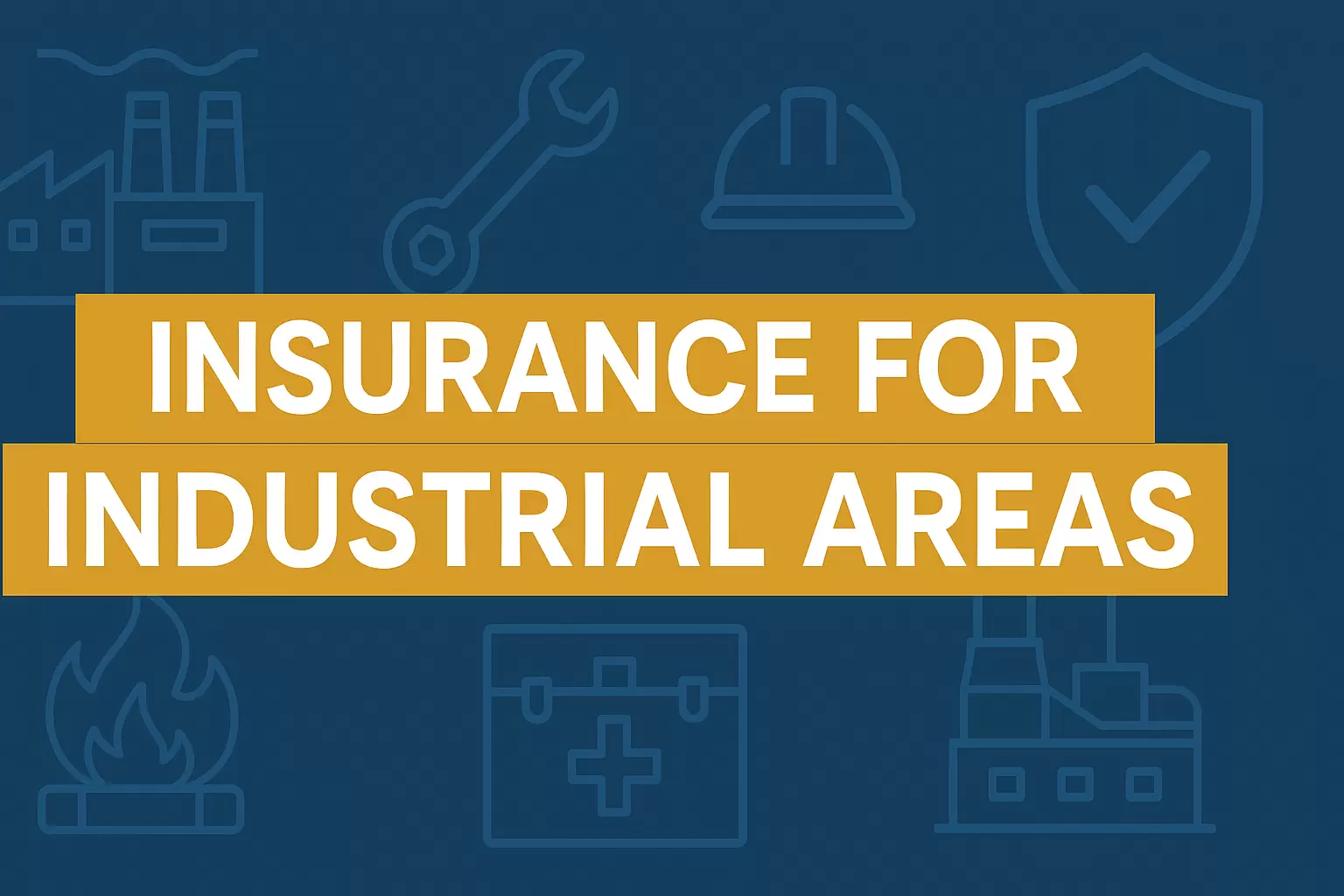The Unsung Shield Behind Every Successful Factory
Imagine running a busy industrial unit — machines buzzing, forklifts in motion, staff working hard to meet deadlines. Everything’s moving in sync… until one unexpected event throws everything off.
Maybe it’s a fire in the warehouse. Maybe a worker slips and injures themselves. Or maybe a machine breakdown halts production for days.
These situations aren’t rare. They’re real. And they’re expensive.
That’s where industrial insurance steps in — not just as a formality, but as the invisible shield that protects your livelihood, your people, and your peace of mind.
🔍 What is Industrial Insurance?
At its core, industrial insurance is a specialized branch of commercial insurance designed to protect factories, warehouses, workshops, and other production-heavy environments from financial loss due to unexpected events.
But this isn’t a one-size-fits-all deal. Industrial spaces have unique risks — fire hazards, heavy machinery, high employee density, and exposure to natural disasters.
To truly protect your setup, you need a tailored insurance policy that understands your business from the inside out.
💣 Real Risks Faced by Industrial Businesses
Let’s break this down with some real-world risks every industrial zone faces:
- Fire & Explosions: One electrical spark in a chemical warehouse can trigger a massive loss.
- Machinery Breakdown: Imagine your main production unit breaking down mid-month — missed deadlines, angry clients, and mounting expenses.
- Employee Injuries: With heavy equipment and manual labor, the risk of accidents is much higher than a regular office setup.
- Natural Disasters: Floods, earthquakes, and storms can wipe out years of investment overnight.
- Vandalism & Theft: Expensive raw materials and finished goods are attractive to criminals.
These aren’t “what ifs.” They’re “when it happens” situations. And if you’re uninsured or underinsured, the financial and legal consequences can be devastating.

🛡️ Must-Have Insurance Policies for Industrial Units
Let’s talk about the core types of insurance every industrial setup should consider:
1. Commercial Property Insurance
Covers buildings, equipment, raw materials, and inventory. It protects against damage caused by fire, theft, storms, and more.
property damage coverage, commercial building insurance
2. Business Liability Insurance
Protects you if someone — like a vendor or delivery person — is injured on your property or sues your business for damages.
3. Workers’ Compensation Insurance
Essential for businesses with labor-intensive operations. Covers employee injuries, medical expenses, and lost wages.
workers compensation, employee injury insurance
4. Equipment Breakdown Insurance
Covers costs to repair or replace machines and covers revenue lost during downtime.
equipment insurance, industrial machinery insurance
5. Business Interruption Insurance
Covers lost income if your operations halt due to a disaster. This is a game-changer for businesses that run on tight schedules.
business income insurance, loss of revenue insurance
6. Product Liability Insurance
If your manufactured goods cause damage or injury, this insurance covers you from lawsuits and compensation claims.
product liability coverage
💡 Why Customization is Key
No two factories are alike.
A food processing unit needs coverage for refrigeration breakdowns and hygiene-related claims. A metal workshop needs protection from fire, toxic fumes, and machinery breakdowns.
A tailored commercial insurance plan based on your industry type, asset value, workforce size, and risk level is crucial.
Pro tip? Work with an insurance advisor who specializes in industrial risk management.
📈 The Financial Impact of Being Uninsured
Let’s be blunt: the cost of not having insurance is often irreversible.
- A factory fire could cost you ₹50 lakhs in damages.
- A single worker injury can run up ₹5–10 lakhs in medical claims.
- Machinery breakdowns could halt production and lead to client cancellations.
Many small and mid-size industrial businesses never recover from such hits. Insurance isn’t a luxury. It’s survival.
🧠 Think Beyond Compliance
Many business owners buy basic insurance just to tick boxes required by regulatory bodies. But is that enough?
Often, it’s just the bare minimum coverage — not enough to help you bounce back from a real crisis.
Being proactive about risk and investing in comprehensive coverage builds business resilience.
And resilience? That’s what separates businesses that survive from those that collapse during a crisis.
🧍 A Real-Life Story: From Disaster to Recovery
A small-scale textile factory in Gujarat faced a fire that destroyed their raw material worth ₹20 lakhs. Thankfully, they had property and business interruption insurance.
Within weeks, they received compensation for damages and lost revenue. Not only did they bounce back — they scaled up production post-recovery.
Their competitors without insurance? Gone.
🌍 Industrial Insurance in the Age of Automation & AI
With more factories adopting automation, robotics, and AI-driven systems, industrial insurance needs to evolve too.
- Cybersecurity threats to smart factories
- Software failures
- Automation-related worker displacement
Talk to your insurer about future-focused coverage — because industrial risk today isn’t just physical. It’s digital too.
✅ Final Checklist for Industrial Insurance
- Do you have property damage coverage?
- Are all your machines and electronics insured?
- Do you have liability coverage for third parties?
- Are employees covered under workers’ compensation?
- Can your business survive 30 days of halted production?
If your answer is “no” or “not sure” to any of these — it’s time to act.
🧭 Conclusion: Peace of Mind is Profitable
Running an industrial unit is no small feat. You’ve got machines to manage, staff to support, deadlines to hit, and clients to satisfy.
The last thing you want is a sudden crisis wiping out everything you’ve built.
Industrial insurance gives you the confidence to grow — knowing you’re covered if things go wrong. Because let’s face it… sooner or later, something will.
And when it does, you’ll thank yourself for having the foresight to protect your business, your people, and your future.
💬 “You can’t prevent every fire, but you can make sure it doesn’t burn down your future.”
thanks for reading our post…
